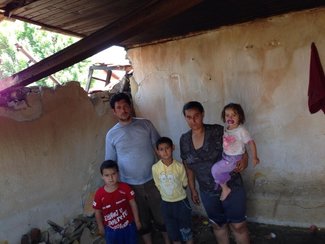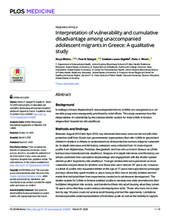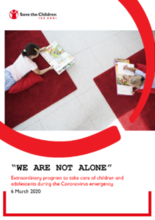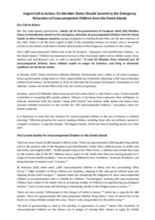

Displaying 121 - 130 of 544
Through the two-year project ‘Leaving Care – An Integrated Approach to Capacity Building of Professionals and Young People’, SOS Children’s Villages, in collaboration with international project partners, aimed to train care professionals in how to apply a child rights-based approach in their work with young people leaving care and worked to strengthen support networks for young care leavers.
The objective of this study is to identify situations and behaviors occurring during contact visits that are likely to have an impact on a foster child's well‐being.
This study examines how the interpretation of vulnerability by the national shelter system for male UAMs in Greece shapes their trajectories into adulthood.
The present study aims to identify the adoptee, parents and family related predictors of the adoptive parents' parenting stress, exploring direct and indirect effects. Fifty Portuguese adolescents' adoptive parents participated in this study.
This review aims to provide social workers with a resource to guide their decision‐making by evaluating both the benefits and risks associated with open adoption.
Esta página de Plataforma de Infancia presenta una selección de los artículos o recursos educativos que han identificado hasta ahora y que pueden facilitar la tarea de hablar con niñas y niños sobre el coronavirus y resolver sus dudas.
Save the Children Italy has launched an extraordinary intervention program for children and adolescents involved in their projects. The program aims to be a valid support for vulnerable minors and their families.
The undersigned organizations of this Call to Action jointly call on the governments of European Union (EU) Member States to immediately commit to the emergency relocation of unaccompanied children from the Greek islands to other European countries, giving precedence to existing family links and the best interests of the child.
The goal of this study is to analyze the profile of 353 adolescents in TRC in Spain.
This short video from BBC News features interviews with some of the migrant children and young people who are being held in difficult conditions in the Greek port of Mytilene.



